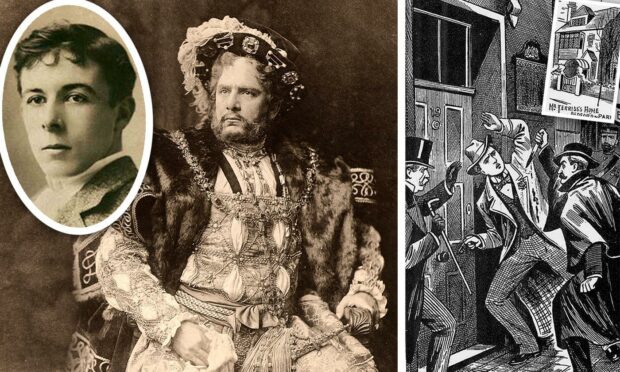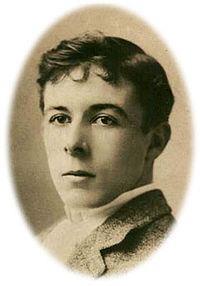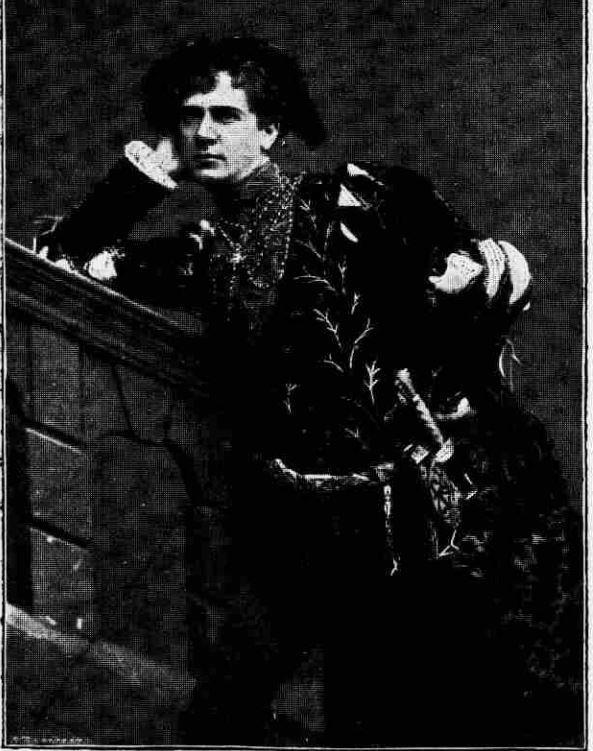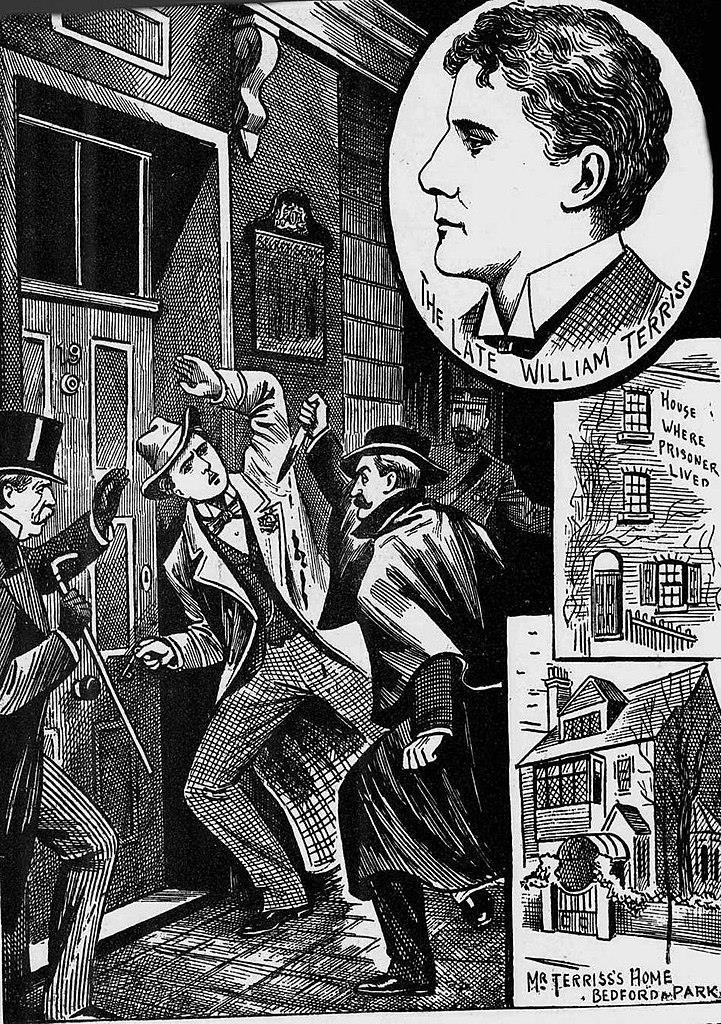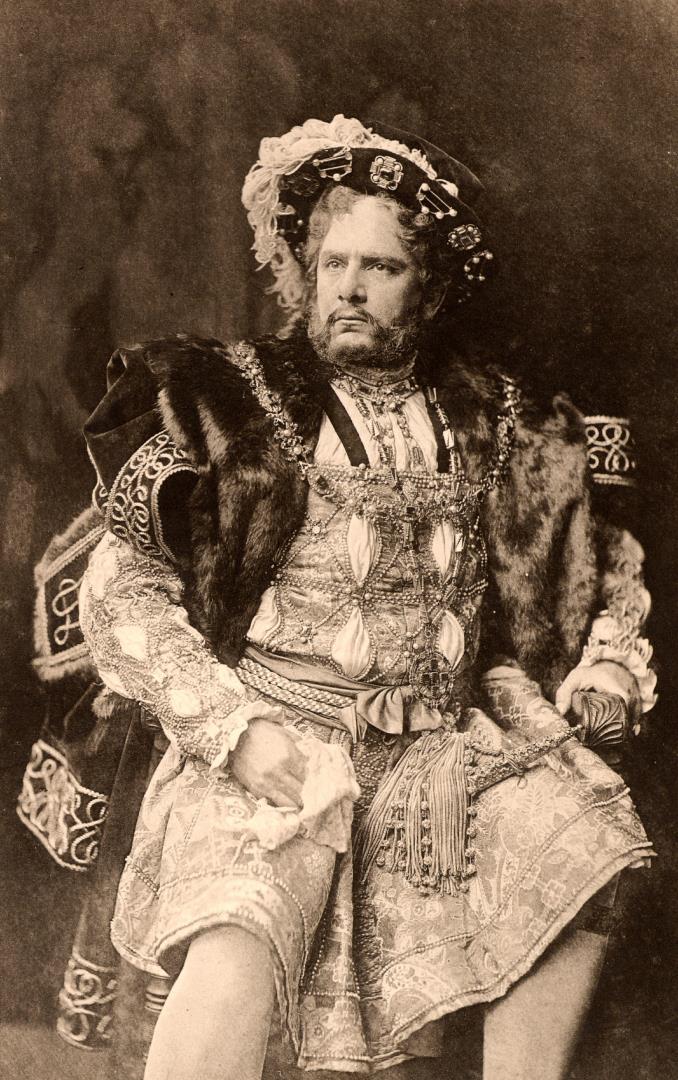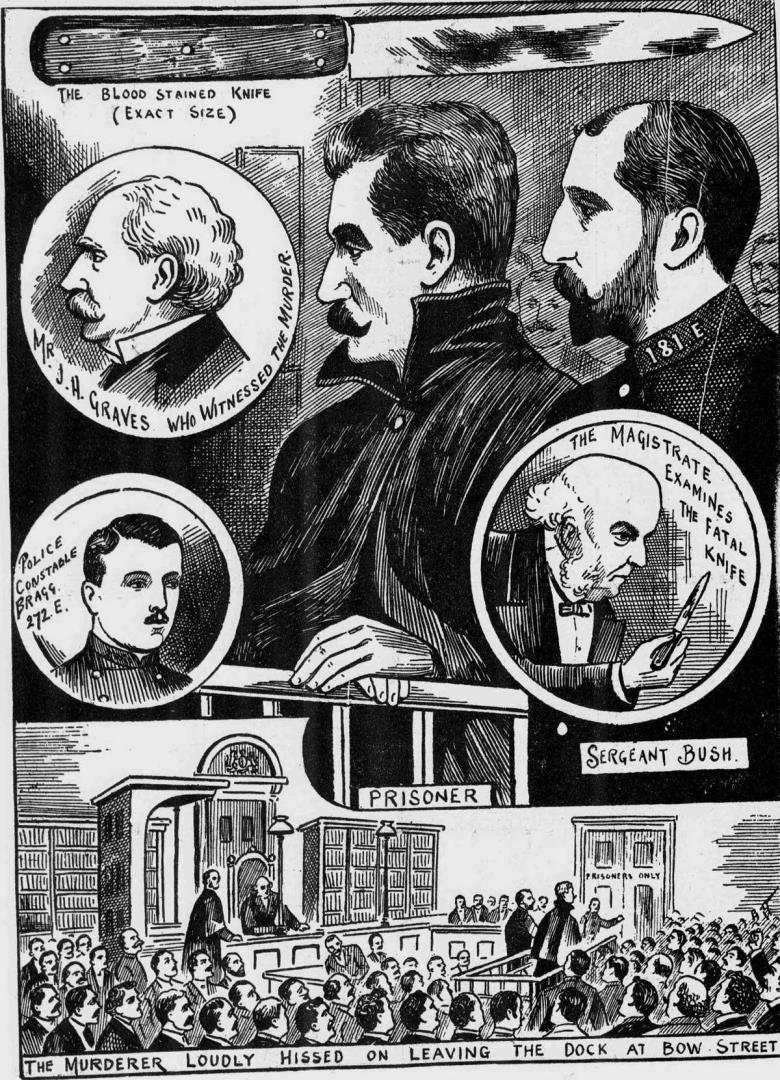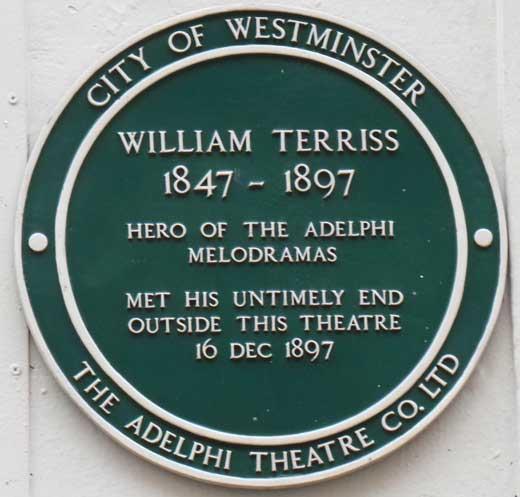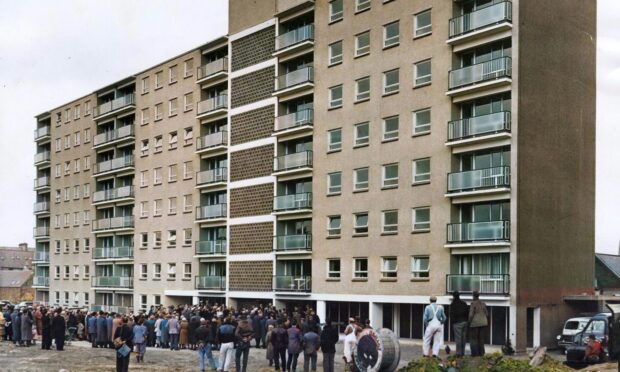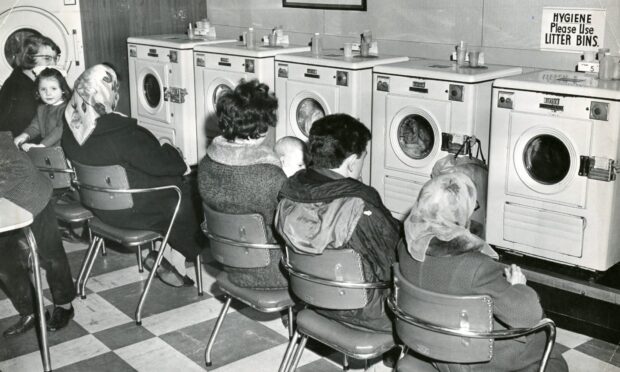Christmas 1897 wouldn’t have been a good time to be a Dundonian in London.
The country was in shock and outrage, after a long-simmering thespian tiff came to a head and resulted in the fatal stabbing of an adored matinee idol by a deranged Dundonian bit-part actor.
Richard Archer Prince lay in wait for William Terriss at the Royal entrance of the Adelphi Theatre in Maiden Lane, where he unleashed his resentment of Terriss with ‘a most murderous-looking sheath knife’.
The fact that Prince had to ambush Terriss at the Royal entrance to the theatre must have been galling in itself for the simmering Prince, as only Terriss and two principal members of the company were allowed to use this entrance.
The rest of the cast had to use the stage door.
From melodrama to real life
That evening at around 7.30pm Adelphi actors were all turning up for a performance of the melodrama Secret Service in which Terriss was wowing audiences as Captain Thorne.
It would be hard to overstate Terriss’s popularity at the time.
He had good looks, charisma and charm and audiences couldn’t get enough of him.
It was a stark contrast to the qualities of his assassin Richard Prince.
Terriss even had the keys to the Adelphi Royal entrance, and it was while he was stooping to turn the lock that Prince struck.
Terriss’s friend and eyewitness Henry Graves said: “Somebody rushed from across the road and struck him two blows most rapidly on the back.”
It happened so quickly that witnesses at first thought it was a rather rough pat on the back.
The shock of a knife
Terriss himself didn’t quite realise what was going on as he turned to face his assailant – and this time Prince plunged his knife deep into Terriss’s chest.
As he did so, Prince shouted: “You stopped me yesterday; I’ll stop you today!”
Terriss cried out: “My God I am stabbed, arrest him”, as the commotion brought scene-shifters running from the theatre.
He was taken first into the stage door passage, and once doctors arrived from nearby Charing Cross hospital, carried onto the sofa in his dressing room.
He died shortly before 8pm, as the audience were filing into the theatre for the show – a full house, due to Terriss’s popularity.
The performance was cancelled that night.
Prince without remorse
Meanwhile, Prince was arrested without resistance and taken to the police station, followed by Henry Graves.
Graves asked him: “What could have induced you to do such a cruel deed?”
Prince answered: “Mr Terriss would not allow me to have any employment and I did it in revenge.”
He insisted to the police: “He blackmailed me for 10 years”, adding, “I have given him due warning plenty of times… I should either have to die in the street or have my revenge.”
Prince was wearing an Inverness cape and had no compunction in throwing it back to reveal the large blood-stained knife.
Without remorse he said: “He prevented me from getting assistance from the Actor’s Benevolent Fund today, and I have stopped him.”
What lay at the bottom of the bad blood?
Prince had at one time been employed at the Adelphi, although he had failed to get a part in Secret Service.
The press reported that he was popularly known as ‘Mad Archer’ or ‘Mad Prince’ among his fellow small-time actors.
“He is a tall, sallow-complexioned man, about 32 years of age, and this, coupled with the fact that he usually wore a cape of eccentric cut, led to earlier rumours that the murder had been committed by a foreigner.”
Since losing his employment at the Adelphi, Prince had applied to the Actor’s Benevolent Society for Aid, but “he seemed to have got an idea that Mr Terriss stood in the way of the receipt of assistance.”
It later emerged that he had tried several times to waylay Terriss at the theatre prior to that fatal night.
A history of instability
Prince’s instability went back years.
Born Richard Millar Archer, he came from near Dundee, born to Margaret, the second wife of his father David Archer, a ploughman.
Margaret spotted something not right about him early on and blamed it on having left him in the sun as a baby while she was working in the fields.
Prince didn’t shine at school and worked at a shipbuilders for a time.
When his parents went to London around 1875, Prince joined them, and advanced his acting ambitions.
He managed to get small roles in London theatres, including the Adelphi.
Meanwhile, Terriss was in the ascendant, and by the 1890s, they knew each other.
The problem with Prince
The problem was Prince thought more highly of himself as an actor than did others, so frequently found himself ‘resting’.
Terriss tried to help him find work in productions he was in – but the relationship between the two took a nosedive when Prince made deprecating remarks about Terriss after he had acquired a minor role for him in a show.
Terris had Prince dismissed, but sent him small sums of money via the Actor’s Benevolent Fund, and continued to try and find him acting work.
But Prince was in the grip of alcohol abuse and becoming increasingly mentally unstable.
When ‘resting’ he would return to Dundee to take up labouring jobs.
By 1897, he was destitute, desperate for work and had become unemployable. He hung around the Adelphi and was seen arguing with Terriss.
Prince was convinced that Terriss was deliberately preventing him from getting acting work, and became bitter and jealous.
Matters came to a head, in his mind, when he asked for money at the Benevolent Fund’s office, but was told his request couldn’t be considered that day.
This prompted the fatal attack on December 16 1897.
An audience to his downfall
The public was outraged, booing and hissing Prince when he appeared in court the following day to be remanded.
In court, the secretary of the Actor’s Benevolent Fund, a Mr Coltson, testified that Prince’s accusation that Terriss had stopped him from getting relief funds was untrue, stating: “In fact, it was mainly through the generous recommendation of the deceased that the man was assisted.”
Mr Coltson went on: “The prisoner greatly resembled the conventional stage villain in dress and appearance.
“He seemed to me to be rather mad, and had a wild peculiar look about the eyes on occasions when I have been talking to him in my office.”
Prince appeared at the Old Bailey on January 13, 1898, at first pleading “guilty with provocation”, and he was later advised to change this to not guilty.
Guilty but not responsible
Evidence was produced, including from his own mother, that he was of unsound mind.
In the end the jury found him guilty, but “according to medical evidence, not responsible for his actions.”
He ended up in Broadmoor Criminal Lunatic Asylum for the rest of his life, where he made the most of his captive audience, becoming involved in entertainment for the inmates and conducting the prison orchestra.
The theatrical community was outraged by his sentence, saying the only reason he avoided execution was because William Terriss was an actor.
Prince died of natural causes in 1937, aged 79.
Terriss however is said to live on in ghostly form, haunting Covent Garden tube station and the Adelphi Theatre.
